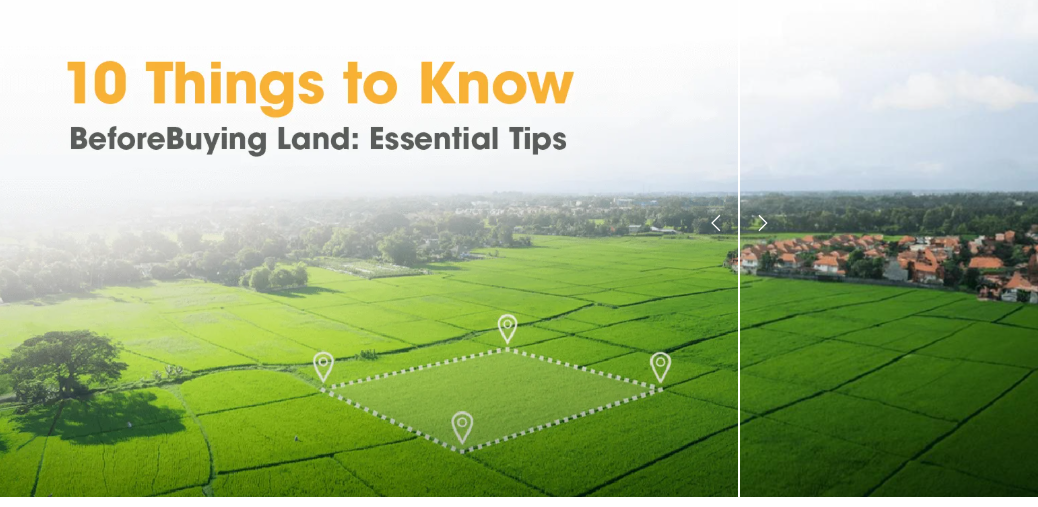Buying land in Kenya is a significant investment and a lifelong dream for many. Whether you are looking to build a home, invest for future returns, or start a commercial project, land ownership is a valuable asset. However, with rising cases of fraud and complex legal procedures, it’s crucial to make informed decisions before making a purchase. Below is a complete guide covering all the essential factors to consider when buying land in Kenya.
1. Land Ownership and Title Verification
The title deed is the most important document in any land transaction.
- Confirm the seller’s name matches the title deed.
- Conduct a search at the Ministry of Lands to verify ownership and check for encumbrances.
- Determine the type of title: Freehold (permanent ownership) or Leasehold (usually 99 years).
- Avoid any property without clear legal documentation or one with pending disputes.
2. Location and Accessibility
Location is a key determinant of land value and usability.
- Choose land near developing towns, infrastructure projects, or urban centers.
- Ensure the land has direct access to a public or registered private road.
- Consider distance to schools, hospitals, markets, and your workplace or investment target area.
- Areas like Ruiru, Kitengela, Juja, Kamakis, and Nanyuki have shown steady growth.
3. Zoning and Land Use Regulations
Each county government in Kenya zones land for specific uses.
- Check whether the land is zoned for residential, commercial, industrial, or agricultural use.
- Request information from the local county physical planning office.
- Ensure the land use matches your plans (e.g., you can’t build apartments on agricultural land without official change of use).
4. Land Size, Shape, and Boundaries
Land dimensions must match your development goals.
- Confirm the size stated on the title deed using a licensed surveyor.
- Get a beacon certificate and mark the boundaries.
- Avoid irregularly shaped plots, land with unclear boundaries, or plots overlapping with road reserves or riparian land.
5. Price, Payment Terms, and Hidden Costs
Know the full financial implication before buying.
- Compare the asking price with market value in the same area.
- Be clear on payment plans—some sellers offer installments.
- Budget for additional costs like legal fees, stamp duty (usually 4%), title transfer fees, survey charges, and valuation costs.
- Avoid deals that are “too good to be true” as they may signal fraud.
6. Legal Documentation and Due Diligence
A secure land transaction requires thorough legal checks.
- Engage a qualified land lawyer to review sale agreements and ensure all procedures are followed.
- Insist on a written sale agreement and proper consent documents from relevant authorities.
- Avoid paying cash—use bank transfers or escrow accounts for accountability.
7. Land History and Ownership Background
Understanding the land’s history helps avoid future legal issues.
- Inquire about previous owners and the reason for selling.
- Avoid land that was part of community land, public utility land, or under legal dispute.
- Confirm that the land isn’t subject to squatter claims, boundary disputes, or ongoing litigation.
8. Security and Neighborhood Profile
Safety and neighborhood character are crucial when evaluating land.
Visit the site both during the day and at night to get a true feel of the environment.
Investigate the security reputation of the area through local police stations or residents.
Choose areas with established or growing communities for better social amenities and resale value.
Avoid locations known for land invasions, frequent disputes, or squatter settlements.
9. Availability of Utilities and Infrastructure
Access to basic services significantly improves land value.
- Confirm if the land is near electricity, water supply, and sewer systems.
- Check for telecom and internet connectivity, especially for residential and commercial plots.
- Nearby amenities like schools, hospitals, police stations, and public transport add long-term value.
10. Investment Potential and Future Developments
Buying land with future appreciation in mind is key to long-term gain.
- Check for upcoming developments such as bypass roads, new towns, airports, or SEZs (Special Economic Zones).
- Look for government or private projects that can boost demand in the area.
- Buy in growth corridors like Eastern Bypass, Southern Bypass, Kangundo Road, and Nairobi-Mombasa corridor.





